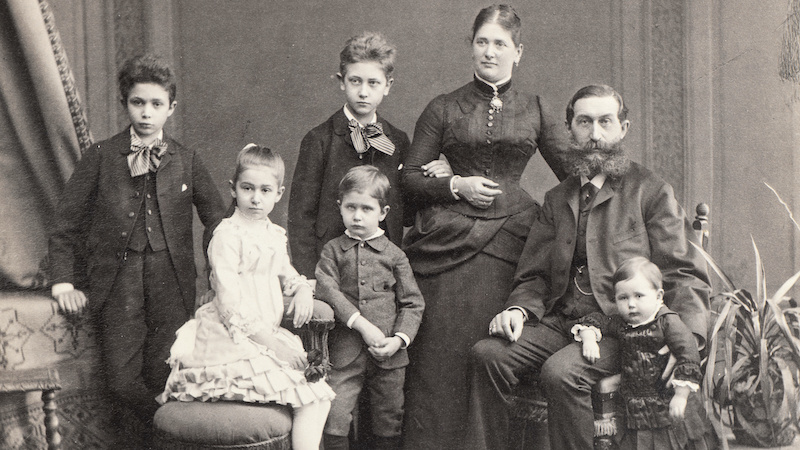I’ve been leading children’s and family ministry for nearly 25 years. However, when I think of family ministry, the first thing that comes to mind is an unclear picture of what family really is. Chances are, you see families the same way I do. I think we need to RETHINK the family because how most of us think is not completely accurate, strategic, and far less impactful. Let me explain.
I have family bias and I didn’t even recognize it
15 years ago, I remember having an important conversation with the church management team. We were discussing the large number of blended families in our church. I remember speaking out on the topic, explaining that it was difficult for me to identify with these families because of my childhood.
A few minutes passed and then I started laughing, interrupting the conversation. Everyone was staring at me. Why was I laughing so obnoxiously?
I explained my ridiculous mistake. I had claimed that I couldn’t identify with a blended family because my mom and dad had been married to each other for the entirety of my life. However, my dad had been married before he met my mom and I had grown up with two half-brothers. I had grown up in a blended family.
How did I miss it?
Although my half-brothers were 10 years older than me and they were in and out of the house during my childhood, all I had focused on was the tight-knit family experience provided by my mom and dad. I had grown up in a blended family even though it never truly felt like this broken or awkward family experience.
The numbers speak for themselves
A few years ago, I read about the rapidly shrinking number of kids who are growing up in homes with both biological parents. I did some quick internet research and came across a couple of helpful articles (this one and this one). These articles show that somewhere between 50 and 60 percent of children in the US live in homes with biological parents who are married to each other.
This means that 4-5 of every 10 kids in your church ministry do not live with both biological parents. That is a significant number.
I don’t have any statistical data to back up these next to claims, but I imagine that I’m probably right (just using reason).
- I imagine that far more than 50% of today’s children’s and family ministry leaders grew up in homes with both biological parents.
- I imagine that almost all of today’s children’s and family ministry leaders (if they have kids) are married to their kid’s biological mother/father).
So why all the math and statistics?
I think that you share the same bias as me.
Why is bias the norm?
Even though some of us come from blended/non-traditional families, most of us live in the context of raising kids with another biological parent. When we think of family, we think of families like ourselves. When we think of what kind of ministry families need, we think of what families like mine need. Our “traditional” family bias is usually the leading thought.
However, culture seems to support our bias.
- The photo frames at the store are almost always filled with images that reflect a traditional family
- Google family and you’ll find that almost all image results reflect a traditional family
Interestingly though, our media (TV and Movies) typically present the modern family as it currently exists.
We should RETHINK our audience
This is the point. When we think of family ministry, it’s difficult for us to see something different than what we have personally experienced. However, our churches are filled with kids who:
- Live with unmarried, cohabitating parents
- Live with step-parents
- Live with on parent
- Live with a grandparent
So, when you are developing resources or programs for families, are you targeting the 40-50% of kids in your church who have a family experience very different from your family?
- Is it possible that your single parents are too exhausted to use that tool you provided?
- Is it possible that some parents feel like they don’t fit?
- Is it possible that some of your resources don’t “represent” many of your families?
Thank goodness for your family experience, but recognize how your bias is shaping your entire ministry. Rethink your family ministry so that you can impact EVERY family who attends your church!















Thank you Kenny for this timely post. My minister is with single parents and children of divorce. Sometimes I feel like I’m banging my head against the wall because children’s ministers and church leaders don’t seem to comprehend. I think you have hit it right on, two-parent birth families are not the norm any longer. While it is sad our society has come to that, the children in these new normal families deserve to have God in their life and Christ as their Savior.
Thank you so much for understanding the plight of the single parent. Love your comment, “They may want to use the resource or attend that program, but they just don’t have the capacity.” Many times they are so exhausted or so financially strapped they can’t afford that workbook.
I’m keeping your post and I’ll probably be referring to it in a blog.
Thanks again and blessings to you!
Linda Ranson Jacobs
http://www.dc4k.org (Divorcecare for Kids)